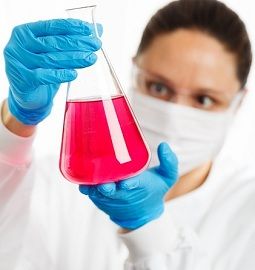 The objects surrounding us are created out of matter, and it is present in three forms, i.e. element, compound and mixture. Chemistry is that branch of science which deals with these three forms. Elements allude to those substances that can’t be split into simpler substances. The compound is the chemical combination of elements, bonded together in specific proportion. The mixture is the physical combination of substances, bonded together in any proportion.
The objects surrounding us are created out of matter, and it is present in three forms, i.e. element, compound and mixture. Chemistry is that branch of science which deals with these three forms. Elements allude to those substances that can’t be split into simpler substances. The compound is the chemical combination of elements, bonded together in specific proportion. The mixture is the physical combination of substances, bonded together in any proportion.
While the compound is a pure substance, the mixture is an impure substance. It is difficult for many science students to understand the difference between compound and mixture, so here we’ve simplified it for you.
Content: Compound Vs Mixture
Comparison Chart
| Basis for Comparison | Compound | Mixture |
|---|---|---|
| Meaning | Compound refers to a substance formed by combining two or more elements chemically. | Mixture implies the intermingling of two or more substances into one physically. |
| Nature | Homogeneous | Homogeneous or Heterogeneous |
| Composition | Fixed | Variable |
| Substance | Pure | Impure |
| Properties | Constituents lose their original property. | Constituents keep their original property. |
| New substance | New substance is formed. | No new substance is formed. |
| Separation | By chemical or electro-chemical methods. | By physical methods. |
| Melting and boiling point | Defined | Not defined |
Definition of Compound
Compound means a substance formed as a blend of various elements chemically in a certain proportion, by weight. It is entirely new substance, which possesses properties different from that of its constituent substances. For example – Water, salt, carbon dioxide, sodium chloride, etc.
The compound is the unification of various elements so that the atoms present in the elements are clasped together by the chemical bond, which cannot be easily split. Bonds are created out of sharing of electrons among atoms. So, there are different types of bonds:
- Covalent bond: A chemical bond in which exchange of a pair of electrons between atoms takes place, is known as a molecular bond or covalent bond.
- Ionic bond: A chemical bond, wherein whole sole transmission of valence electrons between atoms takes place is called the ionic bond.
- Metallic bond: Bond occurring as a result of electrostatic attraction between metallic ions and conduction electrons.
Definition of Mixture
When two or more substances are put together, in any ratio such that no chemical reaction takes place, the material comes out, is a mixture. For example – Sand and water, sugar and salt, air, etc.
In a mixture, the properties of the components are retained even after they are mixed, as a solution, suspension and colloids. The combination should be capable of being separated back to normal through physical means. These are made up of a diverse range of molecules which are arranged in two ways:
- Homogeneous mixture: A uniform mixture, wherein the constituents cannot be distinguished easily by way of simple observation.
- Heterogeneous mixture: A mixture in which ingredients are of difference shape, size or state and are easily distinguished through simple observation.
Key Differences Compound and Mixture
The difference between compound and mixture can be drawn clearly on the following grounds:
- The compound is used to mean a substance, created by combining two or more than two substances chemically in a certain ratio by weight. The mixture is described as a substance formed as a result of intermingling two or more substances into one, physically.
- Compounds are always homogeneous, whereas mixtures can be homogeneous or heterogeneous.
- In a compound, the ingredients are present in a definite proportion. On the contrary, the constituents are present in a variable proportion in a mixture.
- The compound is a pure substance, which contains only one kind of molecule. As against this, a mixture is an impure substance which contains various types of molecules.
- The properties of a compound are identical to the properties of its ingredients. Unlike mixture, wherein the properties of ingredients and the mixture are same.
- The compound, results in the making of the new substance, while mixture does not lead to the creation of new substance.
- The constituents of a compound can be separated only by chemical or electro-chemical reactions. Conversely, the components of the mixture can be bifurcated by physical methods.
- Compounds are boiled or melted at a definite temperature. On the other hand, mixtures, do not have a fixed melting and boiling point.
Conclusion
To sum up, we can say that compound is an element, which combines two substances that give birth to a new substance, having different attributes. On the flip side, the mixture is nothing but a simple amalgamation of two substances, in which the substances possess their individual attributes.






Unknowne says
Thank you for the help
akansha says
good
akansha says
nice
Abdulmajid says
Very well explained
Richard says
good work thank you.
Piyush says
Very good.
Dania says
Very well explained…
Thanks
mohsin says
good
aviral says
thanks
Anubhav says
I have understood. THANK YOU.
Veronica says
Thank you I have learned more
Trish Kaveni says
thanks
kim bella says
good work done thank u for this work